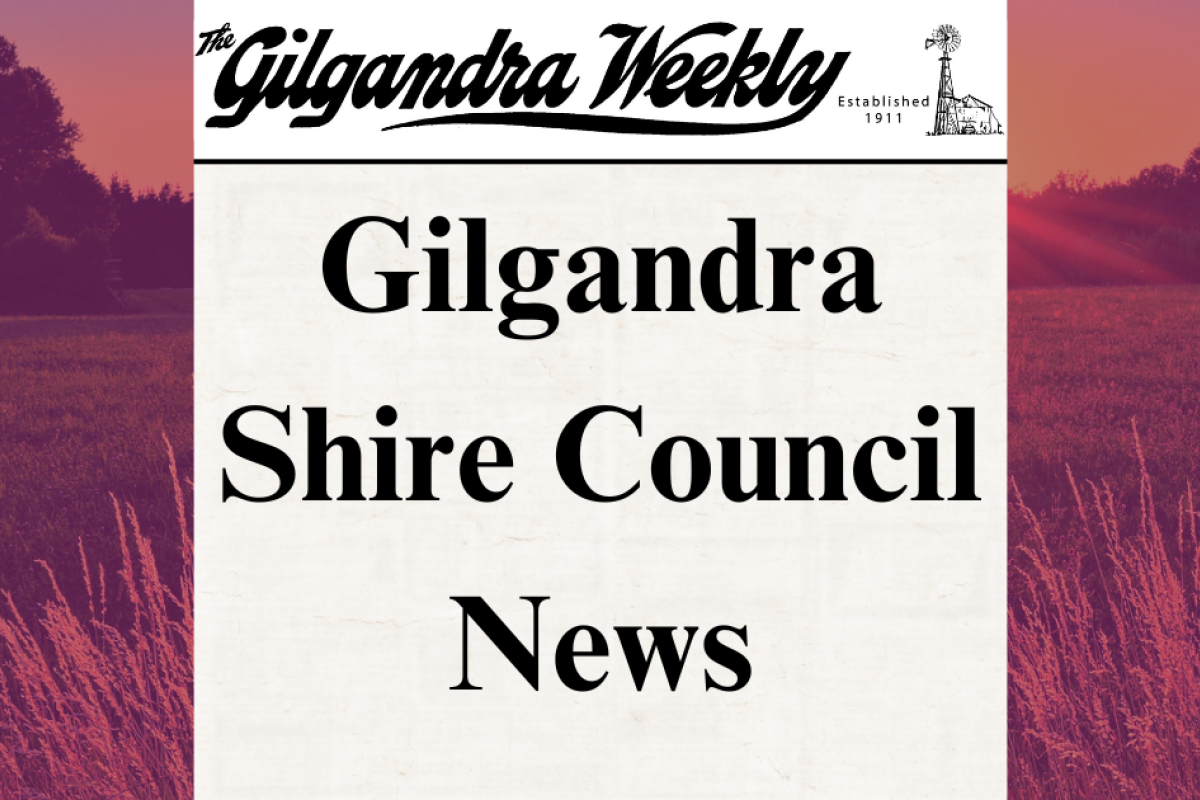General News
19 July, 2024
Council to oppose state waste levy expansion
Gilgandra Shire Council (GSC) has resolved to oppose an expansion of the NSW waste levy currently presented for consultation by the NSW Environmental Protection Agency (EPA).

The waste levy is a “tool implemented by the state government to divert waste from landfill and promote resource recovery… [that] currently applies to EPA licensed facilities within or who receive waste from the defined [levy areas],” according to the June 22, 2024 council business paper. It is an additional charge to a waste facility's own disposal fee and is collected by local government to be paid to the state government. It applies at a rate of $163.20 per tonne in the metropolitan levy area (MLA), and $94 per tonne in the regional levy area (RLA).
The MLA includes areas of greater Sydney. The RLA extends west to the Blue Mountains and Upper Hunter local government areas (LGAs), and north along the coast to the Queensland border. Additionally, it applies to any EPA licensed waste facility that receives over 5000 tonnes of waste per annum.
GSC previously opposed a similar extension proposed by the EPA in 2014. This was successful, and the Gilgandra region has remained unimpacted to date. The EPA is now reconsidering extending the RLA to include parts of regional NSW, introducing the levy to Gilgandra LGA. The current review is intended to examine why recycling in general has plateaued in NSW while waste generation continues to grow, and how the current waste levy can be better leveraged to “reinvigorate” recycling rates.
The Gilgandra Waste Facility receives approximately 1400 tonnes of waste per annum, and the introduction of the levy would have “significant implications” for council and community. The levy would impose further costs for waste collection onto the community; on-site infrastructure upgrades, such as a weighbridge, would be required; further licensing from the EPA, in addition to further oversight; as well as a predicted increase in illegal dumping to circumvent the additional waste charges.
One of the biggest areas of contention around the levy has been the allocation of its collected funds. One third of the revenue is diverted to the state government’s environment portfolio, half of which is directed towards waste and resource recovery programs. “Very little” is invested back into the communities where the levy is collected, a portion of which is only available to councils through competitive grants.
Council have participated in the review through NetWaste, the regional waste group responsible for 25 regional councils including Dubbo Regional, Narromine, Gilgandra, and Warren councils. A formal submission on behalf of the member councils has been developed. “NetWaste councils strongly and completely oppose any change in the waste levy that will extend the regional levy area to include any of the 25 NetWaste councils. [This] would be highly detrimental to waste management and simply lead to community angst and resentment against both local councils and the NSW government.”
The EPA is also undertaking consultation on the ‘Food and Garden Organics Mandate’ which is part of a state government commitment to halving organic waste and achieving net zero landfill emissions by 2030. The removal of food and garden organics (FOGO) is considered one of the most effective ways of achieving this. The state government is proposing to mandate a separation of FOGO collection services for households and businesses separately, as well as mandating reporting and donating of surplus food goods by supermarkets to food charities.
The business mandate is proposed to begin from July 1, 2025, based on waste bin capacity and gradually rolled out for smaller generators. This is predicted to impact local businesses such as Carlos Supa IGA, Gilgandra Multi-Purpose Service, and eventually schools, food/drink and hotel/motel venues. The mandated reporting and donation of food goods was also planned to begin on July 1, 2025.
The household mandate will require all NSW councils to ensure all households are provided with separate organic collection bins (green bins), with possible exemptions for towns below a certain population size or a certain distance from a capable waste processing facility. Currently, the Gilgandra Waste Facility accepts bulk garden waste which is mulched and reused on site. Food organics are disposed of in landfill as part of mixed waste. There is currently no provision for the collection or processing of FOGO in Gilgandra for households or businesses; it requires additional facilities, new bins, and is not considered economically viable for a town of Gilgandra’s size.
Council has proposed a written submission to advocate for the proposed mandates to only apply to the currently regulated areas, the MLA and RLA. This coincides with the current review of the regulated areas, and aligns with councils’ attitude of opposing the extension of the RLA further into western regional NSW. Submission of feedback and consultation for both key topics closed on Monday, July 15.


